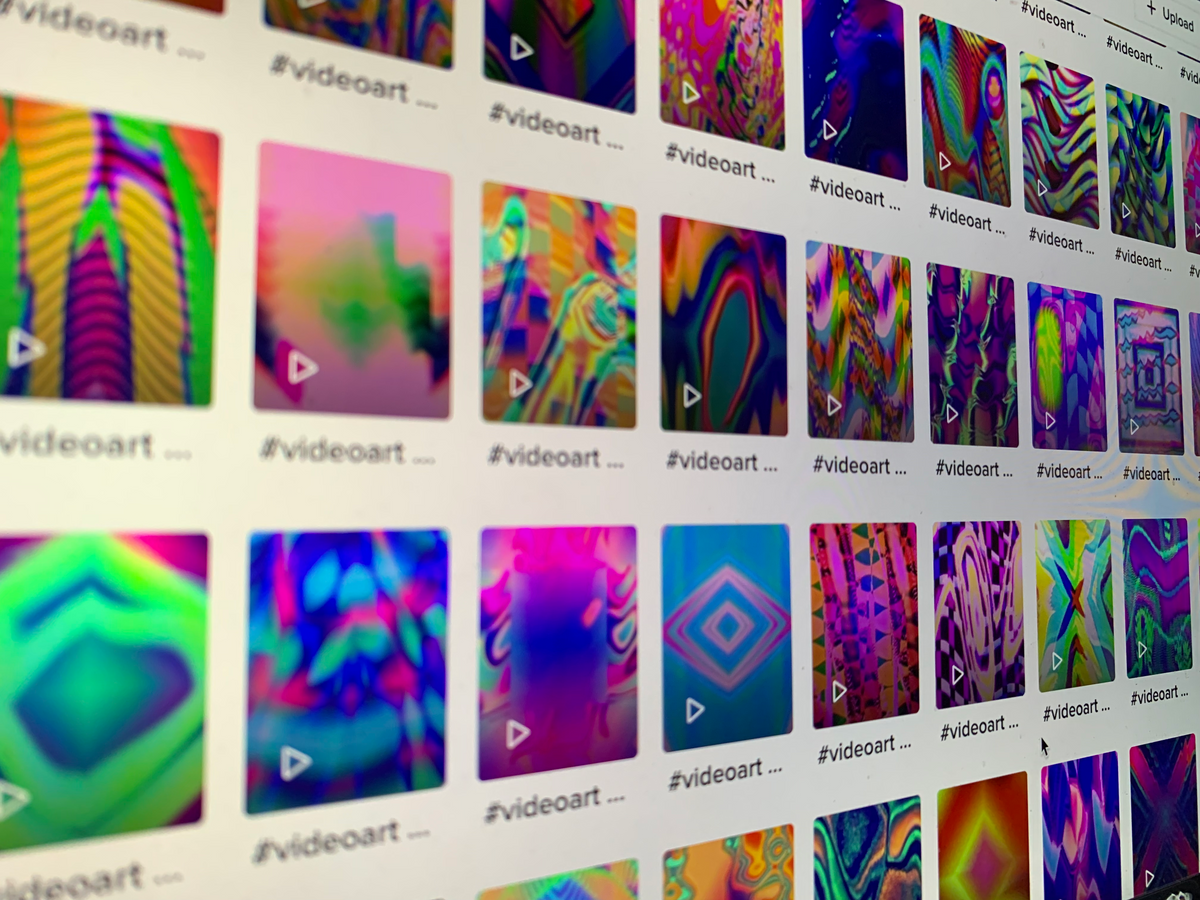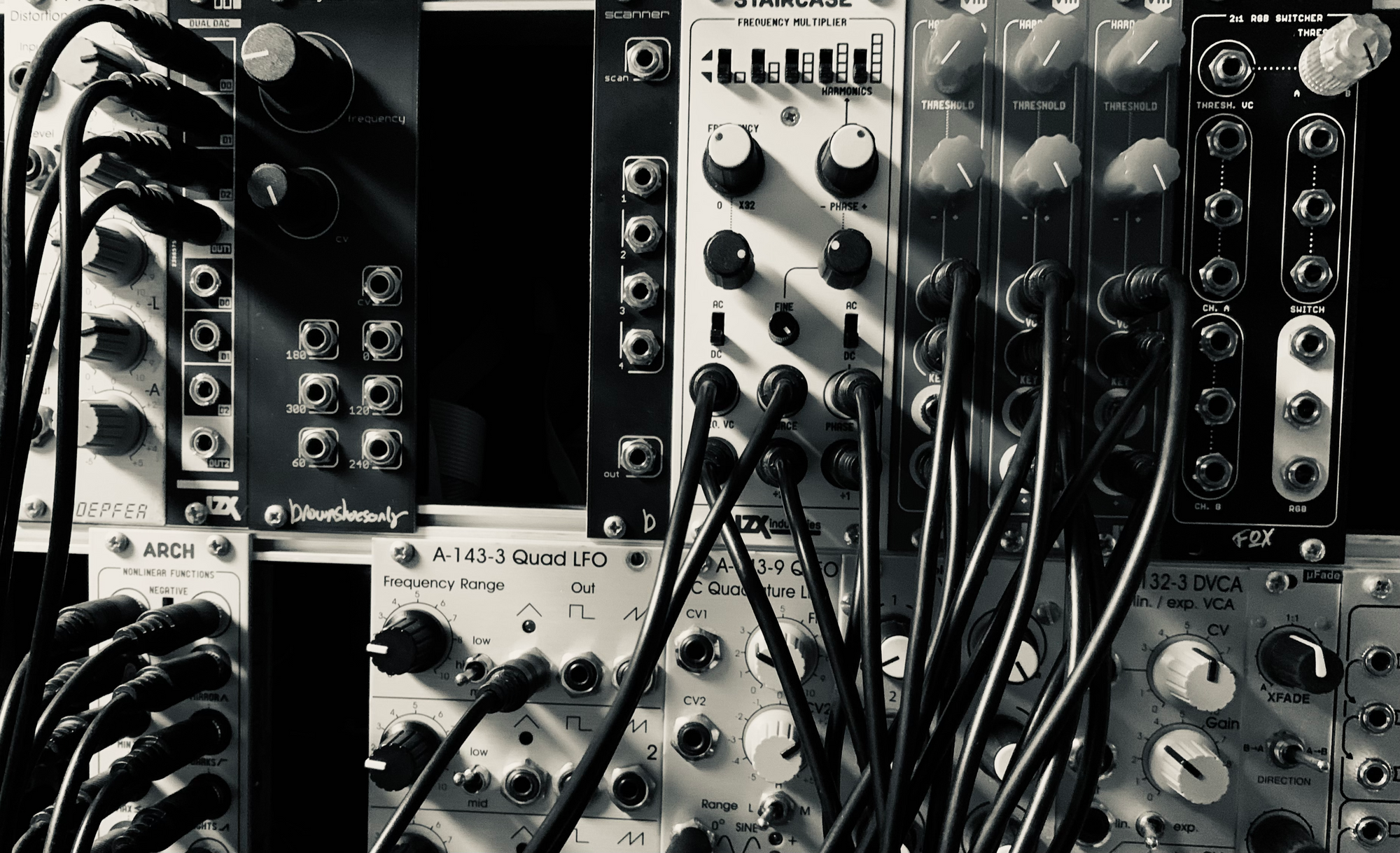Get Better at Art; Start a Daily Art Practice

I've been working with analog video synthesis for over a decade, but I didn't start working with it consistently until December of 2019. That is when I decided to create a daily art practice. That commitment has been the single largest contributor to the improvement of my art.
Benefits
I honestly did not expect to get any tangible benefit from this experiment. Previously, I've taken on projects like, "I'll write about movies for a year," or, "I'll create a new collection of housewares every month for a year." Other folks do Inktober or NaNoWriMo. It's always been a good way to give creative energy a focus and I've always picked up some extra skills along the way, but it never really felt like I was improving myself. Having a daily art practice shattered that.

The Tools
I mainly work with modular video synthesizers and each individual module has a limited amount of inputs, outputs, and knobs. But if you stick a few of those modules together, the possible combinations of connections and settings shoot up exponentially.
As you experiment every day, you'll start repeating yourself–which is not a bad thing! These repetitions will create a muscle memory. You will develop a shorthand for specific effects or techniques. Knowing what to reach for and why is invaluable.
The Quickness
I'll get into this more later, but the time it takes to go from blank canvas (whatever form that may take) to a work you are happy with plummets. This is a particularly useful skill if you have commissioned work with tight turnaround times.
The Confidence
Until I undertook this practice, I always felt like I was capable working with video, but more of a hobbyist. Maybe I felt like there was something missing or that I didn't quite know how to achieve what I had in my head. When you're wobbly like that, you're not going to make work that you are completely happy with. After doing this for three years, I am very happy with my work. I know I can turn out work that I am proud of and it won't be a fluke. I have a much better understanding of what I am capable of and what isn't really possible.
The Limitations
Part of the promise of creative expression is that it can be anything; there are no limits. But that isn't really true. Every medium has a set of parameters to work within.
Having a daily art practice will teach you where these limitations are. You will know when to make certain decisions because you will see your work running headfirst into a wall. Avoid the wall. Make the art.
Do It Yourself
If this sounds like a good idea to you, let me walk you through some best practices I've found after doing this for nearly three years straight.
Start Small
Let's be real, making art can be scary. It's scary to put yourself out there. It's even scarier to put yourself out there with a new technique or medium that you have zero confidence using.
My initial commitment was to post a video every day for 30 days. A month is managable. Start smaller than that, if you need to. Can you do it for a week? Give it a shot. That said, I would strongly suggest that this is a daily practice. Posting once a week is great for consistency, but it gives you too much time to fuss and overthink what you are doing.
One of the great benefits of this practice is that you get much, much faster at making art. If you are trying to squeeze in some kind of art making every day amongst jobs, family, and other commitments you will figure out ways to get quick about it. You will stop hemming and hawing over decisions and commit to things immediately.
When I started in December of 2019, it took me somewhere between 90 minutes to 2 hours to make a 15-second video. These days, I can turn out a composition that I am happy with in 15 minutes. Sometimes I will dawdle and explore a little more, sure, but pressed for time, I can get in my practice and move on with my day.
Notice how I said 15 second video? Scale your end result way down. 15 seconds is achievable on a daily basis. Are you a painter? Paint a 3"x5" index card. It doesn't matter if you usually work huge, you will make time for your big projects. This is all about consistency and accountability and learning your tools.
Pick a Platform
A big part of holding yourself accountable is making this an intentionally public act. Share that shit.
My 15 second video constrait actually arose out of the platform that I initially chose: TikTok. Is TikTok the best place for sharing art and getting likes and followers? No, not really, but likes and followers is not at all what this is about.
I like TikTok because it makes posting videos easy and it has a huge audio library to draw from. My videos are created in utter silence, so the ability to add a fitting soundtrack as part of the posting process was a nice benefit. TikTok also makes it easier to share to other platforms, so I now post all of my videos to TikTok and then from TikTok to Instagram Stories and Posts. It takes three taps.
Hate social media? No problem. Spin up a free blog and post it there. You don't have to engage with the platform any more after putting it up there. Forget about comments. Forget about likes. For your own mental health, ignore stats and metrics entirely.
I understand that posting publically as yourself may not be a safe option for everyone. Post anonymously or create a pseudonym. Create a burner account. After all, you're starting with a small commitment–30 days of daily posts–who cares if you delete everything after it's over?
Post Your Worst Work
You are not going to have kick-ass days every day. On some days, you may be in a creative rut. You feel like you are repeating yourself. The work will not be at all what you had intended. You will be exhausted or running short on time and you will just have to call it. But you still need to post it.
I've posted videos that I wasn't 100% happy with, and you know what? I've revisited those pieces later–when I was in a better headspace–and there's something to them. Maybe the colors weren't really to my taste, but I like the motion. Can I replicate that motion again in a different video, with a better palette this time?
Sometimes videos that don't do much for me have garnered some of the most positive comments on social media. You never really know how an audience will react, but you at least need to give them something to react to.
The Hardest Part
The hardest part is always getting started. You just have to do it. Make it a New Years Resolution, if that makes it easier for you. Start with a length of time. If you continue past that initial period, great. If you trash everything after a month, but you learned something in the process, that's great too.